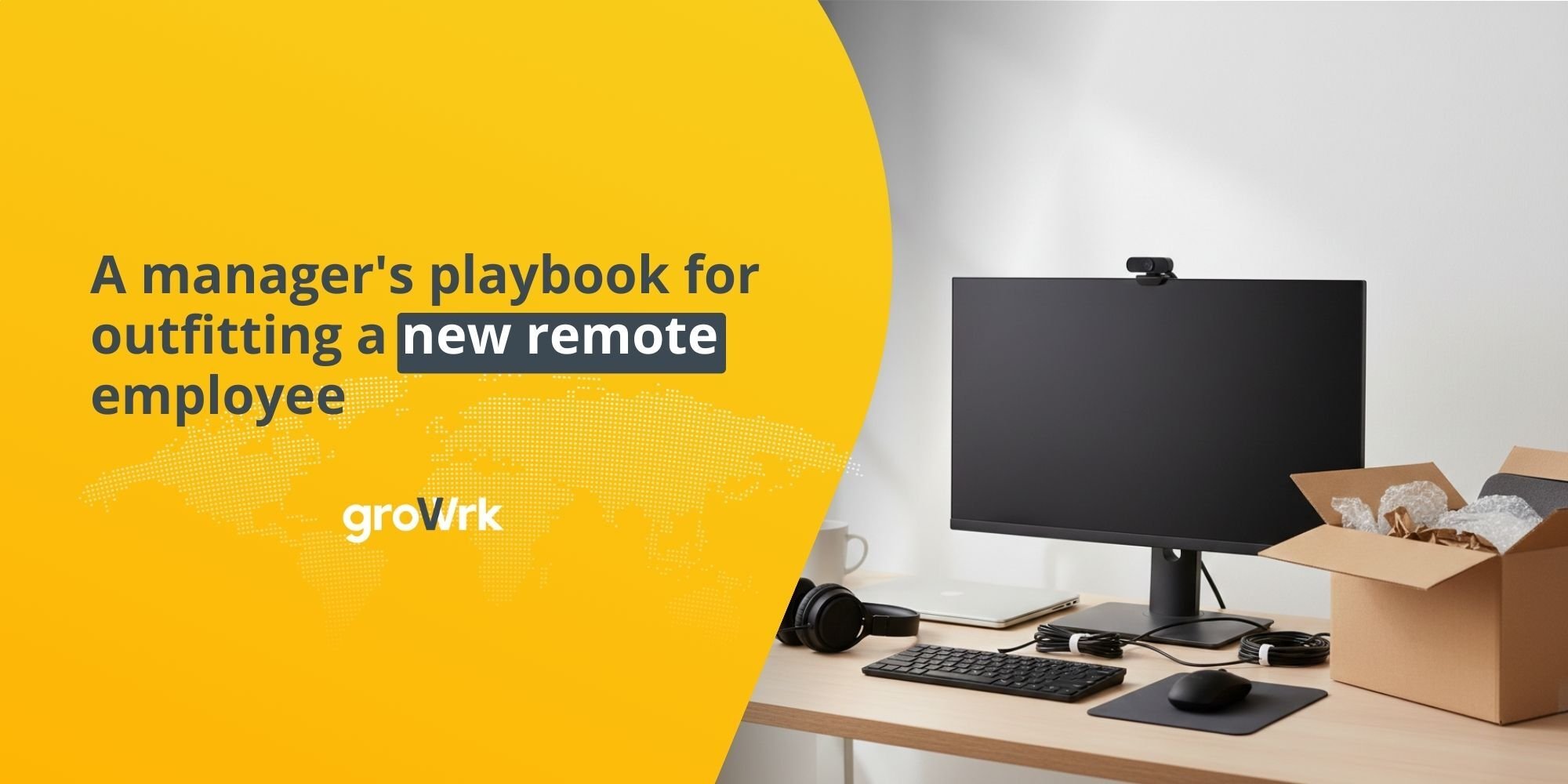Remote company culture: How to build a great one for your organization
 Carlos N. Escutia
Carlos N. Escutia
The lack of company culture is one of the main arguments companies are making to lure people back to the office. However, remote companies can develop a solid culture just as well and, in fact, improve it. Here's our case on why remote work won't kill company culture and how to make it work.
Leaders across industries believe that working from home or another remote location hinders companies from forming tight-knit communication, team building, and camaraderie.
However, the overall employee refusal to return to the physical office after two and a half years of mandatory remote work proves this is not the case. Remote work has made it possible to develop a more collaborative culture than ever before.
This article will cover why remote work can benefit company culture and strategies to build a solid remote-first culture for distributed teams.
Making a case for remote work
 Nowadays, employers are struggling to get their workforce to return to the physical office, an effort that has brought mixed results.
Nowadays, employers are struggling to get their workforce to return to the physical office, an effort that has brought mixed results.
Security company Kastle Systems reported in mid-September that office occupancy within 10 of the country's top metropolitan areas saw an average of 49% of workers going into offices compared with pre-pandemic levels.
On the other hand, there have been cases where employees refuse to return to the physical office, even though companies make it mandatory.
For example, more than 1,300 New York Times employees signed a pledge not to return to the office in early September. In August, Apple employees opposed their CEO's mandate to return to the office at least 3 days a week.
In an internal memo, Apple employees even went on to detail that they had demonstrated exceptional work under their work-from-home and flexible work schedules.
Other tech companies like Meta, Spotify, and Dropbox have reported the benefits of a remote work strategy in achieving diversity goals, improving employee satisfaction, and reducing employee turnover.
What companies argue is that hybrid or remote work arrangements hinder company culture since employees don't get to interact as often and have fewer opportunities to collaborate.
Research from Microsoft's Work Trend Index shows that 82% of business decision-makers consider getting employees back to the office in person as a concern. Meanwhile, 73% of employees say they need a more compelling reason than company expectations to get them back to the office.
What is company culture?
Company culture is the sum of all the behaviors and attitudes that represent an organization. It's the way people act and behave, the rituals they perform, the way they talk and think, and the values they hold dear.
Culture can be defined by the mission, values, and leadership styles that guide an organization. But it also involves a sense of belonging and connection to coworkers.
Company culture can be tricky. Great Place to Work defines it as "what you do in the workplace." It's how things get done and can often be felt even as an outsider.
But if there is no physical workplace where people come together to do work, how can you build a sense of community and belonging?
Why is culture important for companies?

A company's culture defines its identity and its value as an employer. It can help attract top talent from around the world, boost employee engagement and retention rates, foster innovation, or even lead to better customer service experiences — all of which contribute to an organization's bottom line.
The Microsoft Work Trend Index report mentioned before also states that "connecting with colleagues is a key motivation for working in person." The data shows that 84% of employees are motivated by the promise of socializing with coworkers. Meanwhile, 74% said they would go to the office more frequently if they knew their work friends were there.
The compelling reason employees want to return to the office is the sense of community that is crucial to culture.
But company culture doesn't have to be tied to a physical space. What makes a company's culture strong is the intentionality behind it.
How to build a strong company culture for distributed teams
When building a company with remote workers, it's easy to think that the culture will suffer. After all, your team members are spread across the world instead of in one place. But that's not necessarily the case.
Creating a remote culture takes a commitment to changing mindsets, encouraging creativity, and intentional planning. Investing time and effort into building company culture can hugely impact a business's success.
When building a remote first culture, you have the opportunity to rethink the way employees will interact and share your company's values. The most important aspect is to be intentional in creating a culture where workers feel part of a team and where they are appreciated.
How you can create a strong culture for your distributed team

1. Establish your vision
Create a clear vision of what you want the company culture to look like. Set the expectations for what you want your employee interactions to look like and how you want employees to communicate with each other. A precise picture of your culture will make it easier to implement it later.
2. Foster communication
Communication is essential in remote teams. Although not being physically present in the same space can be challenging, today's online communication tools make it easy to stay in touch.
When employees work remotely, they need communication guidelines to know how to reach out to colleagues, their expected working hours, if they can work async, or if they need to attend online meetings.
Documentation is also vital for making remote employees feel at ease. When they have access to relevant documents regarding the company's processes and workflows, they can easily understand how work is done and how their role fits into the bigger picture.
3. Support employee growth
Some companies provide development stipends so workers can buy books, attend conferences or participate in activities that will allow them to gain experience and continue growing professionally.
These stipends encourage employees to keep learning and update their knowledge with the trends and new developments regarding their roles. It also shows the employer's commitment to helping employees grow and develop professionally.
4. Provide PTO and time to log off
Many companies have a remote employee paid time off (PTO) system, which allows employees to take days off when they are sick or need extra help with personal or family responsibilities. This will give employees a break from work and allow them to manage their lives outside the office.
Suppose workers are allowed to take days off or leave early for personal reasons. In that case, it shows that the employer cares about them as individuals with other responsibilities outside work hours.
5. Promote social interaction
In a remote setting, where water cooler conversations are lost, and there's no opportunity for colleagues to grab lunch together, it's crucial to promote other ways of social interaction.
This can be as simple as encouraging employees to chat with one another in a group chat or on a messaging platform like Slack. You can also designate one-on-one meetings between employees from different departments to discuss shared interests or hobbies.
Another option is to encourage in-person meet-ups for co-located employees. These meetings can be an excellent way for employees to get to know each other better and build relationships outside work.
6. Gather in person at least once a year
Remote companies can benefit from off-site retreats or annual gatherings, where teams can connect face-to-face. These events are an excellent way to build team spirit and strengthen relationships to avoid having demotivated team. You can also organize activities at these gatherings that will help the members of your group work together more effectively in the future.
For example, you might plan a team-building activity that requires members to work together on a project or problem. Or you could hold an off-site meeting focusing on learning new skills to help your employees become more effective at their jobs.
Conclusion
Company culture is an integral part of any business, but it doesn't have to be exclusive to the brick-and-mortar office. You can build a strong company culture in a remote environment just as well.
Remote company culture, though, requires intentionality. It requires a plan and a commitment to implement it, but the effort can be well worth it. A solid remote company culture will help your employees feel more connected with each other and their work.
It's important to remember that company culture is more than where you work—it's about how we interact with one another and what values are essential in our lives.
By taking steps to create a positive work environment where people feel valued and respected, you'll be able to attract and retain the best talent out there. It will also make them more productive because they'll feel like they're part of something bigger than just themselves.
GroWrk can help you achieve your team's goals by providing IT equipment management in more than 150 countries. You can easily set up, support, and scale your distributed workforce through our platform. Request a demo today.






